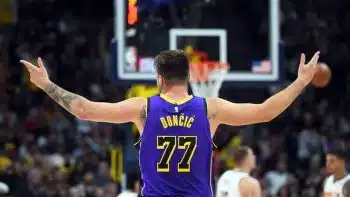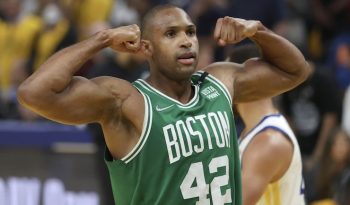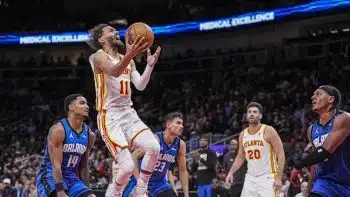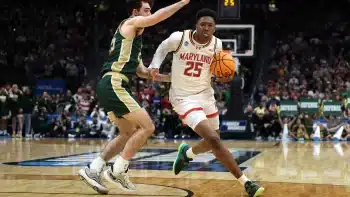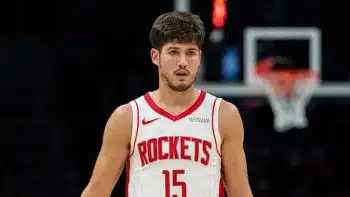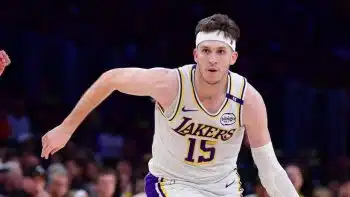NBA
NBA Sunday: Erik Spoelstra Is Here To Stay
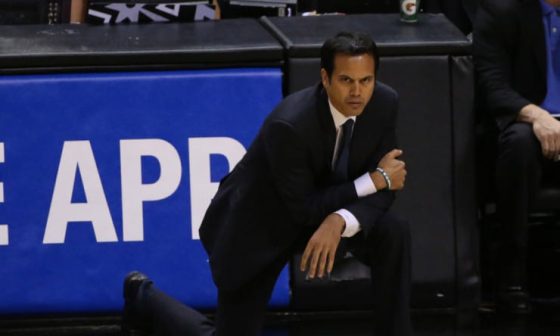
On the first day of 2017, it’s nice to get a reminder that not all NBA front offices are obtuse and unrealistic. For that, we can thank the Miami HEAT, who recently announced that head coach Erik Spoelstra has been signed to a contract extension.
Spoelstra is the second-longest tenured head coach in the NBA, trailing only Gregg Popovich. Hired just 11 days before Rick Carlisle back in 2008, Spoelstra has been on the job for almost nine years. Since day one, he has been everything that a head coach should be, and in a world where NBA franchises change leaders on the bench as often as the sun rises, it’s a refreshing decision that was also the correct one.
* * * * * *
Back in 2012, when the Barclays Center still had the new car smell, Avery Johnson was beaming with excitement. A little more than two years earlier, he had assumed the helm for a franchise that was coming off of a 12-70 season. At the time, the Nets had no present, but were hopeful for the future. The circumstances under which Johnson accepted the job with the Nets was simple: ride the futility out until the team relocates to Brooklyn, and by then, contention would be imminent.
Johnson, a proud and serious competitor, was the same as a head coach. After being Don Nelson’s understudy in Dallas for a few years, Johnson accomplished the rare feat of leading his team to a 60-win season in his first year on the job. During the 2005-06 season, under his leadership, the Mavs went 60-22 before following that up with a 67-15 record the following season.
Johnson had seemingly worn his players thin in Dallas, and despite his 178-68 record and his becoming the fastest head coach to reach 150 wins, Mark Cuban and his front office decided to part ways with Johnson. It would be two years before he would land the head coaching gig in Brooklyn.
The Nets were nowhere near being competitive and Johnson knew it. He agreed to take the inevitable losses onto his career record with the carrot being that, in Brooklyn, things would be different. In the time that passed, the Nets acquired Deron Williams, Joe Johnson and Gerald Wallace. Heading into its first season in Brooklyn, everyone was optimistic—nobody more so than Johnson.
The 2012-13 season began and the Nets got off to an 11-4 start. Johnson won the NBA’s Coach of the Month Award for October/November, so it came as a complete shock to learn that, less than two months later, after the team had won just three of its next 13 games, the Nets decided to fire Johnson.
In hindsight, it looks an awful lot like the franchise, for whatever reason, was merely using Johnson to bide time. Despite all he had given to the team, at the first sign of rugged terrain, he was thrown out like bad leftovers. Since then, across coaching circles, Johnson has become a cautionary tale.
Over the years, coaches have become increasingly disposable. We’ve seen the likes of Terry Porter and Maurice Cheeks fail to last as much as a full season with the Phoenix Suns and the Detroit Pistons, respectively. Others, such as Mike Brown weren’t even seemingly given the opportunity to prove that they could win with their respective squads.
It’s a trend that has only become more and more prevalent in the National Basketball Association, and it’s one that the Miami HEAT seem to understand is foolish and shortsighted.
* * * * * *
Under Erik Spoelstra, the Miami HEAT have accomplished unprecedented success. With LeBron James and Chris Bosh joining Dwyane Wade, the team would win the Eastern Conference four consecutive years and win the NBA Finals in 2012 and 2013. Those that don’t understand the challenges and nuances of succeeding as a coach at the NBA level would foolishly argue that “any” coach could succeed with the type of talent that Spoelstra had without recounting the scores of talented NBA teams that failed to achieve at the highest level.
In the NBA, a talented team is like a fast race car. A coach is the driver. One without the other is nothing more than a false pretense. Spoelstra concocted a game plan for LeBron James and Dwyane Wade to succeed, figured out how to mold Chris Bosh into an All-NBA level defender and managed to keep his team ready and motivated for the targets that they carried on their back for so long.
Even before that trio joined the HEAT in Miami, though, Spoelstra made it his duty to maximize the talent (or lack thereof) that he had at his disposal.
In Pat Riley’s final season coaching the team, the HEAT managed to win just 15 games. For their trouble, they received the second overall pick in the 2008 draft, which they used to draft Michael Beasley. The following season, Spoelstra led the HEAT to a 25-game turnaround, winning 43 games and returning the franchise to the playoffs. In all fairness, Riley’s 15-win season was coached mostly without Dwyane Wade. That Spoelstra got him back was a primary catalyst for the turnaround, but if you ask Wade himself, the respect that he has with Spoelstra is one that is unique and pure. One simply doesn’t rise up through the rank of a franchise the way he did without being a meticulous thinker and hard worker. Those are two words that have come to exemplify his spirit.
Now in his ninth year as the head coach in Miami, Spoelstra trails only Pat Riley as the franchise’s all-time leader in games coached and games won. He leads the franchise in playoff games coached, playoff wins, championships and regular season win percentage, though. That the HEAT are a franchise with a relatively short history (the team began competition in 1988 and has only employed six different head coaches), in many ways, Spoelstra has become synonymous with the culture of the HEAT.
The truth is, that’s the way it should be. All but a few teams need continuity and familiarity to succeed. We commonly point toward the coaching carousel as being the cause of a team’s futility, when it’s more likely that the front office’s impatience, shortsightedness and lack of understanding is the root of the problem.
Fortunately, none of the above can be said of the HEAT.
* * * * * *
Dwyane Wade’s departure to the Chicago Bulls was something that few predicted. As the best player in franchise history, his decision to leave sent the HEAT on the path to rebuilding in a much more dramatic fashion than many anticipated.
Still, though, through it all, it’s nice to know that Miami is realistic about the causes of their post-Wade futility and, even more so, aware of the fact that they have a head coach who embodies nothing but positivity.
Other front offices should take note.
